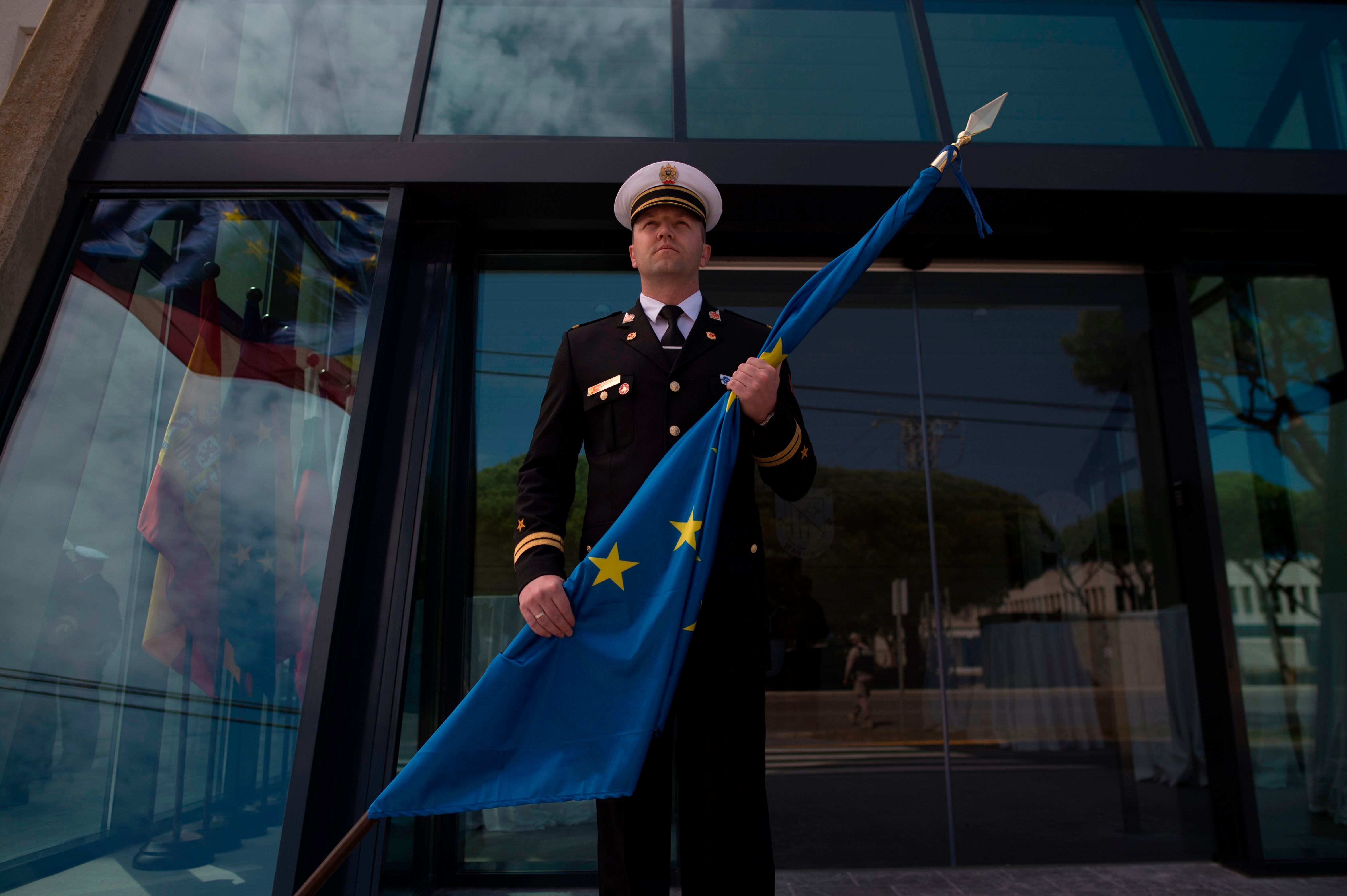WASHINGTON ― U.S. Deputy Defense Secretary David Norquist stuck up for American defense firms Thursday, saying they should not be cut out of European Union programs to strengthen its industrial base, the European Defence Fund and the Permanent Structured Cooperation program.
Speaking at the NATO-Industry Forum in Washington, Norquist said the European Defence Fund ― which commands a €13 billion (U.S. $14 billion) pool of money ― and PESCO ― a 2-year-old initiative to foster inter-European cooperation ― “must allow the United States and other non-EU allies to participate and compete for business,” or risk duplication that undermines trans-Atlantic security.
“Our collective strength and security hinges on our ability to bolster trans-Atlantic defense cooperation and streamline decision-making across the alliance,” Norquist said. “This is why we strongly encourage our European allies to pursue efforts that facilitate greater NATO-EU cooperation and advanced interoperability.”
Norquist’s remarks serve as the latest pushback from Washington concerning draft rules that would restrict non-European countries from the bloc’s programs. Norquist said the U.S. has engaged with the European Commission, the EU’s politically independent executive arm, in an effort "to allow our participation to continue.”
Many member states, Norquist said, “appreciate the value [of] U.S. contributions to efforts such as military mobility and tanker refueling.”
RELATED

Norquist also repeated U.S. concerns that European adoption of a Chinese fifth-generation network, or 5G, could undermine interoperability with the U.S. military. Doing so, he said, would “inject serious risk in communications and intelligence sharing capabilities” between alliance members.
On EDF and PESCO, a raft of Trump administration officials have made similar complaints. U.S. Commerce Secretary Wilbur Ross voiced them at the Paris Air Show in June, and Pentagon chief weapons buyer Ellen Lord wrote to the EU in May, with her State Department counterpart, to say they were “deeply concerned.”
EU foreign policy and defense chief Federica Mogherini responded at the time that the bloc remains open to cooperation with the United States, but that EDF and PESCO were primarily designed to be intracontinental affairs.
On Thursday, NATO Secretary General Jens Stoltenberg also spoke up for “the fullest possible involvement” by non-EU allies in the EU’s special initiatives. “NATO and the EU need to complement each other. Nations shouldn’t have two sets of capability requirements,” he said.
Stoltenberg also welcomed European efforts on defense as a means to increasing defense spending, improving burden-sharing and injecting new capabilities into NATO. Forces and capabilities developed under PESCO, he said, “must also be available for NATO.”
Joe Gould was the senior Pentagon reporter for Defense News, covering the intersection of national security policy, politics and the defense industry. He had previously served as Congress reporter.







